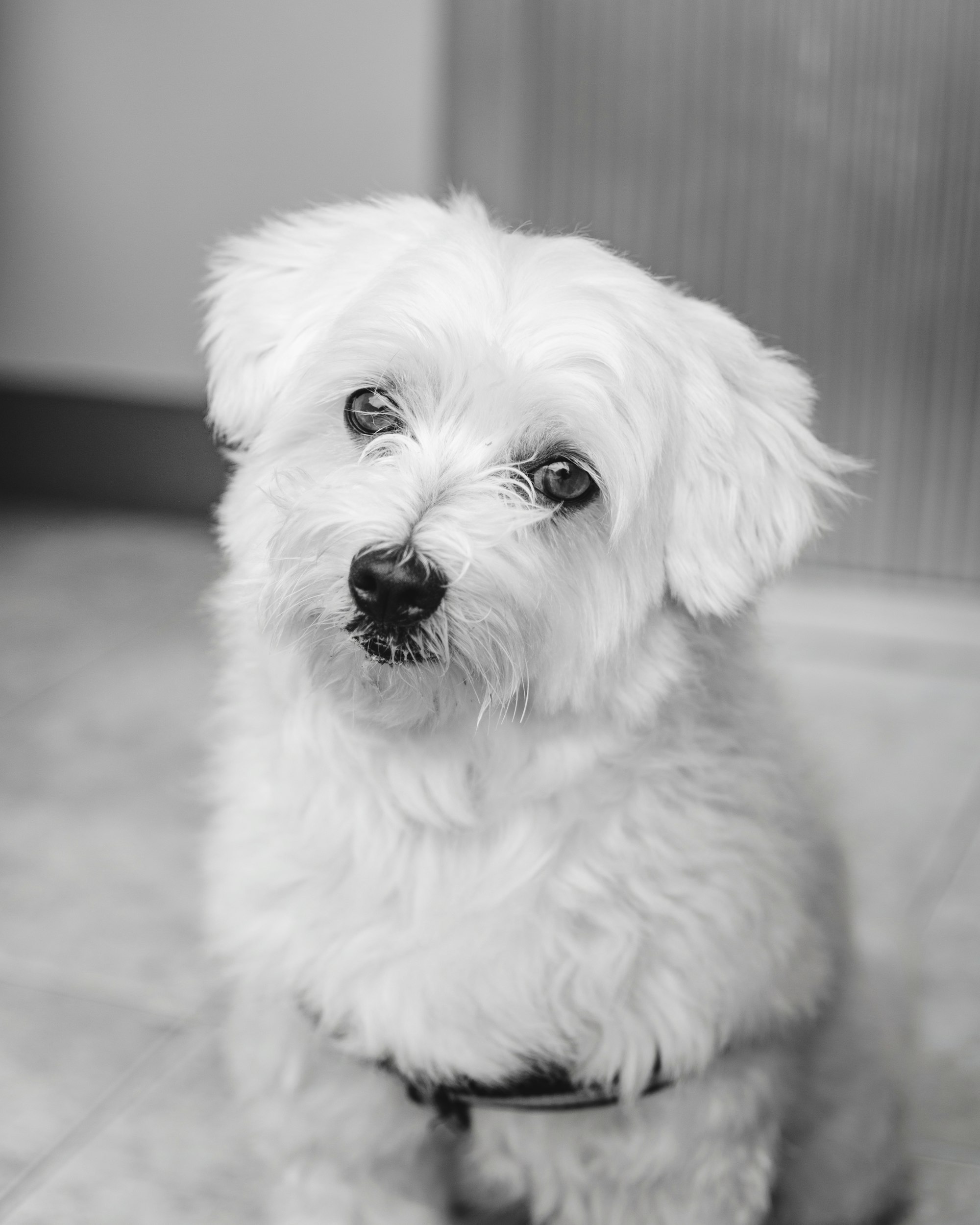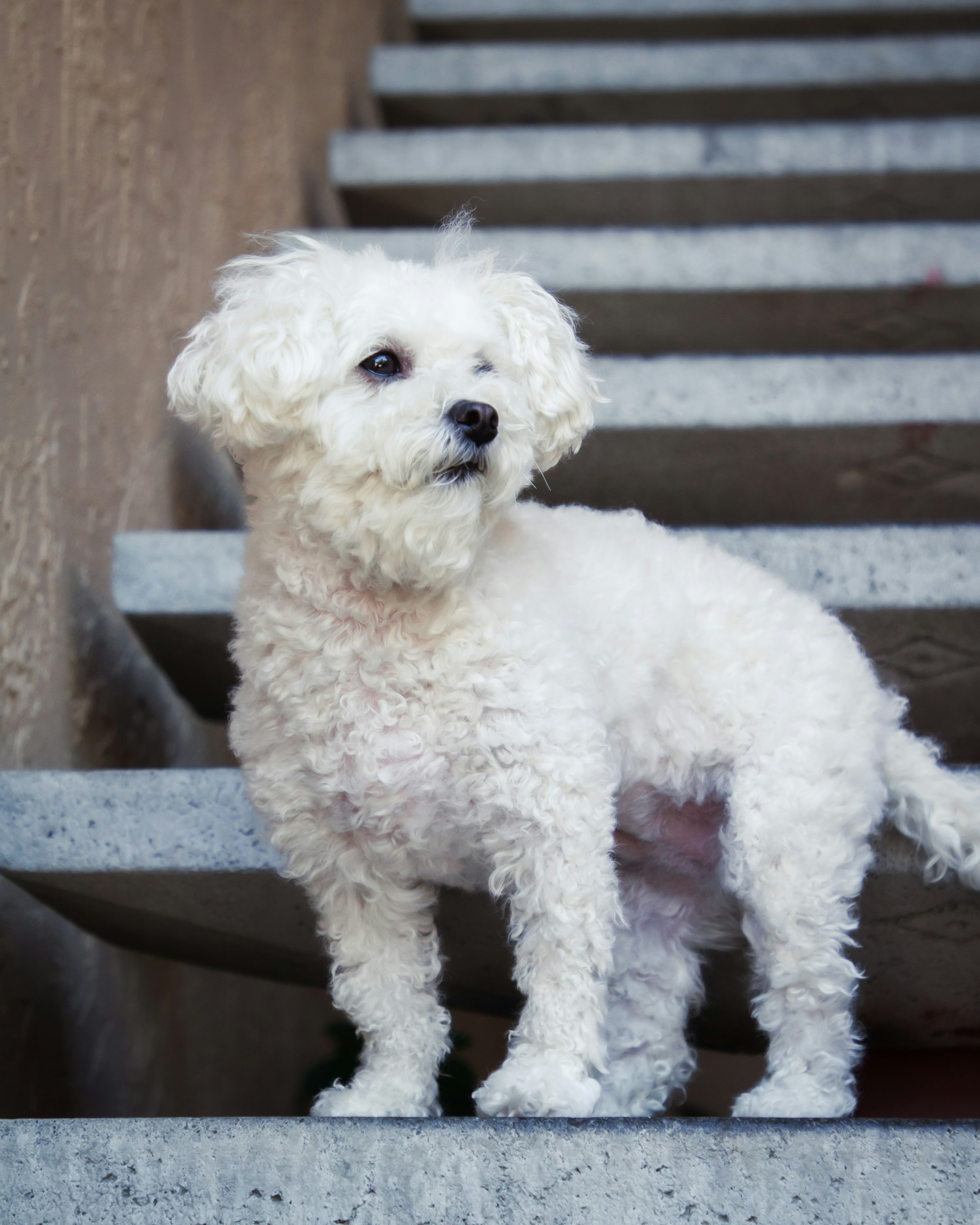Are you considering getting a Maltese dog but worried about leaving them alone? You're not alone in your concerns. Many potential dog owners wonder if Maltese dogs can handle being left by themselves. In this article, we will explore whether Maltese dogs can be left alone and offer tips on how to ensure their well-being when you're not around.

Understanding the Maltese Breed
Before we delve into the topic of leaving Maltese dogs alone, let's take a moment to understand the breed itself. Maltese dogs are small, white, and known for their affectionate and loyal nature. They are often referred to as ""velcro dogs"" because they tend to form strong bonds with their owners and prefer to be by their side at all times. This can make them highly dependent and prone to separation anxiety.
Maltese dogs have a lifespan of around 12-15 years and are generally healthy. They are intelligent, playful, and love to be the center of attention. However, their small size and delicate frame mean that they may not be the best choice for families with young children or larger pets.
Common Concerns About Leaving Maltese Dogs Alone
One of the most common concerns among Maltese owners is whether their dogs can handle being left alone for extended periods. It's important to note that every dog is unique, and their ability to handle solitude may vary. However, Maltese dogs, in general, tend to struggle with being left alone due to their attachment to their owners.
When left alone, Maltese dogs may exhibit signs of stress or anxiety, such as excessive barking, destructive behavior, or soiling in the house. These behaviors are often a result of separation anxiety, which is a common issue among small dog breeds like the Maltese.
Factors to Consider Before Leaving Your Maltese Alone
Before deciding whether to leave your Maltese alone, it's crucial to consider several factors that can influence their ability to handle solitude. These factors include temperament, exercise needs, and the level of separation anxiety your Maltese may experience.
- Temperament: Maltese dogs are known for their affectionate and social nature. They thrive on human companionship and may struggle when left alone for long periods. However, with proper training and gradual exposure to being alone, many Maltese dogs can learn to adapt and feel more comfortable.
- Exercise Needs: Maltese dogs are energetic and require regular exercise to stay happy and healthy. Providing them with enough physical and mental stimulation can help alleviate any anxiety they may experience when left alone. Daily walks, playtime, and interactive toys can keep them engaged and tire them out before you leave.
- Separation Anxiety: Separation anxiety is a common issue among Maltese dogs. They become distressed when separated from their owners and may exhibit destructive or vocal behaviors. It's important to assess your Maltese's level of separation anxiety before leaving them alone and take steps to address it.
Training Your Maltese for Being Alone
Training your Maltese to feel more comfortable when left alone is essential for their well-being and your peace of mind. Here are some tips to help you train your Maltese for solitude:
- Start Gradually: Begin by leaving your Maltese alone for short periods and gradually increase the duration. This will help them build confidence and teach them that being alone is not a cause for anxiety.
- Create a Safe Space: Designate a specific area in your home where your Maltese can feel safe and secure when you're not around. This can be a crate, a gated-off section, or a cozy corner with their bed and toys.
- Practice Departures and Returns: Make your departures and returns low-key to avoid creating excitement or anxiety. Ignore your Maltese for a few minutes before leaving and after returning to establish a calm routine.
Creating a Safe and Comfortable Space for Your Maltese
When leaving your Maltese alone, it's important to create a safe and comfortable environment for them. Here are some tips to ensure their well-being:

- Provide a Comfortable Bed: Your Maltese should have a soft and cozy bed where they can relax and sleep comfortably while you're away. Make sure the bed is placed in a quiet area away from any distractions or noise.
- Leave Interactive Toys: Keeping your Maltese mentally stimulated is vital to prevent boredom and anxiety. Leave them with interactive dog toys, puzzles, or treat-dispensing devices that can keep them entertained and engaged.
- Consider Music or TV: Leaving soft music or the sound of a TV playing can help mask outside noises and create a soothing environment for your Maltese. This can help reduce anxiety and make them feel less alone.
Tips for Leaving Your Maltese Alone
Leaving your Maltese alone doesn't have to be a stressful experience. By following these tips, you can ensure their well-being and minimize any anxiety they may feel:
- Stick to a Routine: Dogs thrive on routine, so establish a consistent schedule for feeding, exercise, and alone time. This will help your Maltese anticipate and adjust to periods of solitude.
- Provide Mental Stimulation: Leaving engaging toys, puzzles, or treat-dispensing devices can keep your Maltese occupied and mentally stimulated while you're away. This can help prevent destructive behaviors caused by boredom.
- Consider Doggy Daycare or Playdates: If you have a busy schedule or your Maltese struggles with being alone, consider enrolling them in a doggy daycare or arranging playdates with other friendly happy dogs. This will provide them with social interaction and mental stimulation throughout the day.
Separation Anxiety in Maltese Dogs
Separation anxiety is a common issue among Maltese dogs and can significantly impact their well-being when left alone. Here are some signs of separation anxiety to look out for:
- Excessive Barking or Howling: Maltese dogs may bark or howl excessively when left alone as a way to seek attention or express their distress.
- Destructive Behavior: Chewing furniture, scratching doors, or digging carpets are common signs of separation anxiety in Maltese dogs. They engage in these behaviors as a way to relieve stress or anxiety.
- Pacing or Restlessness: When left alone, Maltese dogs with separation anxiety may exhibit restless behavior such as pacing, panting, or an inability to settle down.
If you suspect that your Maltese is experiencing separation anxiety, it's essential to consult with a professional dog trainer or behaviorist who can provide guidance and support.
Alternatives to Leaving Your Maltese Alone
If leaving your Maltese alone for extended periods is not feasible or if they struggle with being alone, there are alternatives you can consider to ensure their well-being:
- Hiring a Pet Sitter: A pet sitter can come to your home and spend time with your Maltese while you're away. This can provide them with companionship and prevent them from feeling lonely or anxious.
- Doggy Daycare: Enrolling your Maltese in a doggy daycare program can provide them with socialization, exercise, and mental stimulation while you're at work or away for the day.
- Dog Walker: If you're unable to be home during the day, hiring a dog walker can ensure that your Maltese gets regular exercise and attention. This can help alleviate any anxiety they may feel when left alone.
Balancing Independence and Companionship
Understanding the Importance of Both
Maltese dogs are inherently affectionate and thrive on human companionship. While fostering a strong bond with your furry friend is essential, it's equally vital to recognize the significance of independence. Striking a balance ensures your Maltese remains well-adjusted, content, and capable of handling alone time when necessary.
Creating a Supportive Environment
To encourage independence, establish a designated safe space for your Maltese. This could be a comfortable bed or a cozy corner with their favorite toys. Creating a positive association with this space helps them feel secure during brief periods of solitude.
Alternatives to Leaving the Maltese Alone
Explore alternatives that provide companionship in your absence. Doggy daycare, for instance, allows your Maltese to socialize with other dogs, keeping them mentally stimulated. Hiring a pet sitter or enlisting a trusted friend can also ensure your dog receives the attention they crave.
Real-Life Scenarios and Solutions
Working Professionals and Maltese Ownership
For those with demanding work schedules, being a responsible Maltese owner involves incorporating dog-friendly practices into your routine. Consider arranging midday walks, utilizing pet-friendly workplaces, or hiring a dog walker to break up extended periods of alone time.
Tips for Maltese Owners with Busy Schedules
Balancing the demands of work and pet ownership requires thoughtful planning. Interactive toys, treat-dispensing gadgets, or automated feeders can provide mental stimulation during your absence. Additionally, hiring a dog walker ensures your Maltese gets the exercise and attention they need.
Leaving a Maltese Alone During Travel
Travel plans can disrupt your Maltese's routine, potentially causing stress. Prepare in advance by packing familiar items, maintaining a consistent feeding schedule, and arranging for a reliable pet sitter or opting for a reputable boarding facility.
Understanding the unique needs of your Maltese and implementing strategies to balance independence with companionship is the key to fostering a happy and well-adjusted canine companion.
Common Myths Debunked
Dispelling Misconceptions about Maltese Independence
Myth 1: Maltese Dogs Can't Be Left Alone
Fact: While Maltese dogs enjoy human company, they can adapt to alone time with proper training and gradual exposure. Dispelling this myth is crucial for potential owners to make informed decisions about bringing a Maltese into their home.
Myth 2: Maltese Dogs Are Too Fragile for Independence
Fact: Despite their small size, Maltese dogs are resilient. They can handle reasonable periods of alone time when provided with a comfortable environment, engaging toys, and a sense of security.
Myth 3: Leaving a Maltese Alone Causes Separation Anxiety
Fact: Not all Maltese dogs develop separation anxiety when left alone. Proper training, positive reinforcement, and creating a supportive environment can prevent or mitigate separation-related issues.
Facts about Alone Maltese

Understanding the Solo Needs of Maltese Dogs
Fact 1: Maltese Dogs Thrive on Routine
Maltese dogs appreciate routine, and establishing a consistent schedule for feeding, walks, and playtime helps them feel secure and reduces anxiety during alone time.
Fact 2: Gradual Exposure Builds Independence
Introducing alone time gradually, starting with short durations and gradually increasing, allows Maltese dogs to acclimate to being on their own, fostering independence.
Fact 3: Interactive Toys Enhance Mental Stimulation
Providing your Maltese with interactive toys, puzzle feeders, and toys that dispense treats keeps them mentally engaged and can alleviate boredom during solo moments.
Fact 4: Separation Anxiety Can Be Addressed
Recognizing and addressing signs of separation anxiety, such as excessive vocalization or destructive behaviour, through training and counter-conditioning can help create a positive alone experience for Maltese dogs.
Fact 5: Alternatives Provide Companionship
Exploring alternatives like doggy daycare, hiring a pet sitter, or enlisting the help of a trusted friend ensures your Maltese receives companionship when you can't be with them.
Unravelling common myths and understanding the facts about leaving a Maltese alone empowers owners to provide the best care for their beloved companions, promoting a healthy and balanced relationship.
Conclusion: Finding the Right Balance for Your Maltese's Well-being
In conclusion, while Maltese dogs can struggle with being left alone, with the right training and preparation, they can learn to handle solitude and feel more comfortable. It's important to understand the unique characteristics of the Maltese breed and consider factors such as temperament, exercise needs, and separation anxiety before leaving them alone.
By training your Maltese for being alone, creating a safe and comfortable space for them, and providing mental stimulation, you can ensure their happiness and well-being even when you can't be by their side. If leaving them alone for extended periods is not feasible, alternatives such as hiring a pet sitter or enrolling them in doggy daycare can help provide the companionship and stimulation they need.
Remember, every dog is different, and it may take time and patience to help your Maltese adjust to being alone. With love, consistency, and understanding, you can find the right balance that ensures your Maltese's well-being and your peace of mind.
FAQs (Frequently Asked Questions)
- Q: Can Maltese be left alone for long periods?
A: While Maltese dogs can handle alone time, it's crucial to consider their individual needs and gradually acclimate them to solitude. - Q: How can I tell if my Maltese is experiencing separation anxiety?
A: Signs may include excessive barking, whining, destructive behavior, or house soiling. Consulting with a vet or professional trainer is advisable. - Q: Are there specific toys that help keep Maltese dogs entertained when alone?
A: Interactive toys, feeders, and puzzle toys that dispense treats can engage and entertain a Maltese during solo moments. - Q: What are alternatives to leaving my Maltese alone at home?
A: Doggy daycare, hiring a pet sitter, or enlisting a trusted friend or family member to check in on your Maltese can provide companionship. - Q: Is it normal for Maltese dogs to follow their owners everywhere?
A: Yes, Maltese dogs are known for their attachment to their owners. However, fostering some independence is beneficial for their well-being.